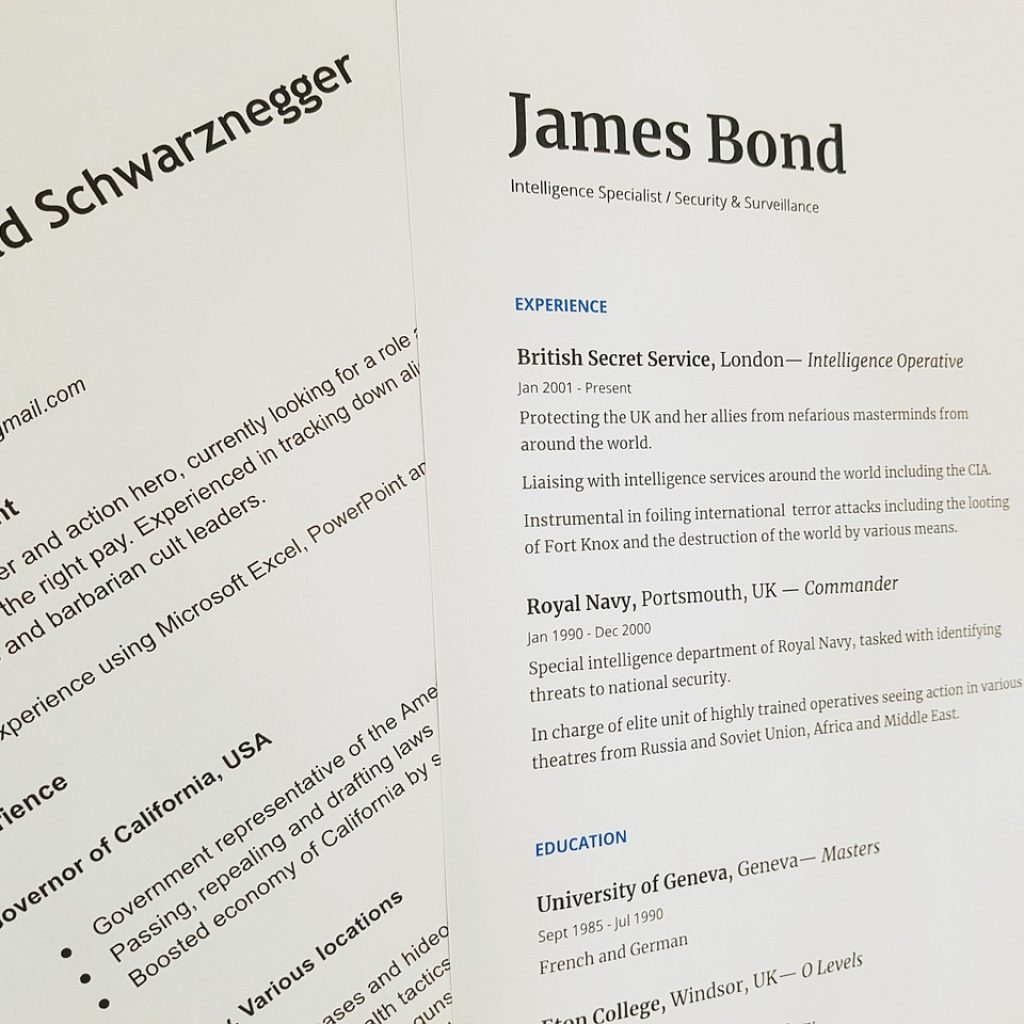



Imagine you’re stepping onto a stage, spotlight beaming down, with the audience’s eyes fixed on you. It’s not a performance in the traditional sense, but a behavioral interview where every gesture, every word, and how you’ve navigated past challenges becomes your act. As you prepare for this pivotal moment in your job search journey, it’s crucial to arm yourself with more than just a polished resume. The answers you craft to potential behavioral questions can set the stage for your success, opening doors to opportunities you’ve dreamed of.
In this guide, we’ll explore the top 9 behavioral interview questions you’re likely to encounter, offering insights and strategies to help you present your experiences and skills in a light that captivates your future employers. You’ll learn not just what to say, but how to say it, ensuring you leave an impression that’s both memorable and favorable.
Join us as we navigate through this critical aspect of your career journey, providing you with the tools to turn the spotlight to your advantage.
Key Takeaways
- Behavioral interviews focus on real work or school events and how the candidate responded, providing insights into their abilities and approach to challenges.
- Employers ask behavioral questions to assess problem-solving skills and fit for the team.
- There are different types of interview questions, including closed-ended, open-ended, situational, and behavioral.
- My Perfect Resume offers customizable templates and tools to help create a professional resume that effectively highlights skills, experience, and achievements.
What is a behavioral interview?
A behavioral interview, distinct from its counterparts, delves into your past experiences to gauge how you’ve navigated real-world situations. Unlike traditional interviews that often focus on theoretical questions, behavioral interviews offer you the freedom to showcase your unique skills and problem-solving abilities through concrete examples. This approach recognizes that your past actions are the best predictor of your future performance.
As you prepare, remember that each question is an opportunity to demonstrate your competence and fit for the role. You’re not just recounting events; you’re illustrating your capacity to think on your feet, adapt, and drive results. This format empowers you to bring your professional narrative to life, highlighting your achievements and learning moments in a way that resonates with potential employers.
Understanding that your experiences are invaluable, these interviews encourage a reflective and strategic recounting of your professional journey. They’re an invitation to articulate not just what you did, but how you did it and the impact it had. This is your moment to shine, to share stories that underscore your resilience, teamwork, and leadership. Approach each question as a window into your professional ethos, showcasing your dedication to growth and excellence.
Common Behavioral interview questions by theme
Delving into the core of behavioral interviews, we’ll explore common questions categorized by theme, providing you with a roadmap to articulate your experiences effectively. These themes are pivotal as they mirror the essential competencies employers seek. Understanding and preparing for them grants you the freedom to navigate your interview with confidence.
- Teamwork: Can you recount a time when you had to work closely with someone whose personality was very different from yours? This question probes your ability to collaborate and coexist with diverse team members.
- Time Management: Describe an instance when you had to juggle multiple responsibilities. How did you ensure everything was completed on time? Employers value your prioritization skills and your knack for efficiency.
- Communication: Share an experience where you successfully communicated a difficult piece of information. This looks into your ability to convey messages clearly and effectively, even in challenging situations.
- Adaptability: Tell us about a time when you had to adapt to a significant change at work. This question gauges your resilience and flexibility in the face of change.
Each theme touches on a fundamental aspect of workplace success. By reflecting on these areas, you’re not just preparing for an interview; you’re examining your professional growth and readiness for new challenges.
Behavioral questions about teamwork
Teamwork’s essence in the workplace cannot be overstated, and it’s crucial you’re prepared to discuss how effectively you collaborate with others during your interview. Employers value candidates who can demonstrate not only their ability to work in a team but also their understanding of when to lead and when to follow. Your experiences can vividly illustrate your teamwork skills, but it’s your reflection on these moments that truly captures your ability to navigate the complexities of collaborative work.
| Question Type | Intent | Example |
|---|---|---|
| Experience-Based | To understand your past team roles | Describe a time you contributed to a team’s success. |
| Conflict Resolution | To gauge your problem-solving skills | Share an example of how you resolved a disagreement within a team. |
| Adaptability | To assess your flexibility in team settings | Explain a situation where you had to adapt to a significant change within a team project. |
Questions about time management
Moving from exploring how you collaborate within a team, let’s now focus on how effectively you manage your time, another critical aspect employers seek in potential candidates. Time management isn’t just about meeting deadlines; it’s about maximizing your productivity while maintaining a healthy work-life balance. Understanding your approach to managing time can reveal your ability to prioritize, adapt, and succeed in a dynamic environment.
Consider these time management-related questions you might encounter:
- How do you prioritize your tasks when everything seems urgent?
- Describe a time when you had to adjust your plans to meet a tight deadline.
- Can you give an example of how you’ve handled a sudden increase in workload?
- How do you maintain work-life balance while ensuring your tasks are completed efficiently?
Employers aren’t just looking for someone who can tick off tasks on a checklist. They’re interested in how you navigate challenges, while still carving out space for creativity and freedom. Your answers should reflect a keen understanding of prioritization, flexibility, and the ability to thrive under pressure. Remember, it’s not just about managing time; it’s about managing yourself within the time you have.
Behavioral interview questions about communication
Effective communication is essential in any professional setting, and understanding how you navigate these waters can provide valuable insights into your interpersonal skills and ability to collaborate. When you’re faced with behavioral interview questions about communication, it’s your chance to showcase how your words and actions foster understanding, resolve conflicts, and build rapport among team members and clients alike.
Here’s a quick guide to help you prepare:
| Question Type | Tips for Answering |
|---|---|
| Describing a complex idea | Focus on simplicity and clarity. Break down your explanation into manageable parts. |
| Resolving a misunderstanding | Emphasize active listening, empathy, and constructive feedback. |
| Persuading others | Highlight your ability to understand others’ perspectives and articulate the benefits of your viewpoint. |
| Receiving difficult feedback | Show openness to growth, and how you use feedback positively. |
Questions about client-facing skills
Mastering client-facing skills is crucial, as they enable you to navigate interactions that directly impact your organization’s success and client satisfaction. When you’re in the hot seat for a behavioral interview, often, the focus shifts to how well you can handle real-life situations with clients. It’s not just about solving problems but doing so in a way that leaves the client feeling valued and understood.
Here’s how you can showcase your client-facing prowess:
- Describe a time when you had to handle a difficult client. This question is your chance to demonstrate empathy and problem-solving skills. Talk about how you listened, empathized, and found a solution that made the client feel heard and satisfied.
- Give an example of a situation where you exceeded a client’s expectations. Use this question to highlight your dedication to going above and beyond. It’s about showing that you’re not just there to do the job but to make a positive impact.
- Explain how you manage multiple client projects without compromising quality. Time management and prioritization are key here. Show that you’re organized and can juggle various tasks while ensuring each client feels like they’re your top priority.
- Share a scenario where you had to adapt your communication style to meet a client’s needs. This question assesses your flexibility and understanding of different communication preferences. It’s an opportunity to prove that you’re client-focused and adaptable in your approach.
Questions about adaptability
Adaptability is a key trait you’ll need to demonstrate during behavioral interviews, as it shows your ability to navigate changes and unexpected challenges effectively. In today’s fast-paced work environments, your potential employer wants to know you’re not just capable of handling the present but are also prepared to pivot when the future demands it. Remember, it’s not just about surviving change; it’s about thriving in it.
When you’re asked questions about adaptability, it’s your chance to showcase how you’ve embraced change, learned from new situations, and ultimately grew from the experience. Employers are looking for individuals who view challenges as opportunities rather than obstacles. It’s about showing them you’re someone who can think on their feet, remain positive, and contribute to solutions, even when the going gets tough.
Consider sharing a story where you had to adjust to a significant change or overcome a particularly challenging situation. Highlight your thought process, the actions you took, and the positive outcomes that resulted. This approach not only demonstrates your adaptability but also your proactive attitude and resilience. Remember, in the realm of adaptability, it’s your mindset and actions that truly set you apart.
Behavioral-based questions about problem-solving
After discussing how you navigate changes, let’s explore how your problem-solving skills have helped you tackle challenges head-on. Behavioral-based questions about problem-solving are pivotal because they reveal not just your ability to solve problems, but also how creatively and effectively you approach challenges. When an interviewer asks you to describe a situation where you had to solve a difficult problem, they’re looking for insights into your analytical and decision-making skills.
- Describe a problem you encountered at work, and how you resolved it. This question seeks to understand your approach to identifying and solving workplace challenges.
- Give an example of a time when you had to think on your feet to resolve an issue. Here, your ability to act swiftly and effectively under pressure is under the spotlight.
- Talk about a time when you solved a problem through teamwork. This question assesses your collaborative skills and your role in facilitating group problem-solving.
- Explain a situation where you came up with a novel solution to a problem. This is your chance to showcase your creativity and innovation in overcoming obstacles.
Questions about motivation
Understanding your intrinsic and extrinsic motivators can significantly enhance how you tackle and persevere through challenges in the workplace. When you’re aware of what drives you, you’re better equipped to seek out opportunities and roles that align with your motivations, leading to greater job satisfaction and success.
Employers are keen on understanding your motivations to ensure you’re a good fit for their team and to gauge how you’ll contribute to their goals. They might ask you about what motivates you at work or how you’ve stayed motivated during challenging times. Your answers provide insight into your personality, work ethic, and potential to thrive.
Here’s a table to guide you through framing your responses:
| Question Type | Purpose | Example |
|---|---|---|
| Personal Motivation | To understand what internally drives you | “What personal achievements are you most proud of and why?” |
| Work Motivation | To gauge what aspects of work excite you | “Can you describe a project that particularly motivated you?” |
| Overcoming Challenges | To assess resilience and determination | “Tell me about a time your motivation helped you overcome a challenge at work.” |
Questions about conflict resolution
Just as recognizing your motivations is crucial for pushing through challenges, effectively handling conflict is key to maintaining harmony and productivity in the workplace. When you’re in a behavioral interview, you might be asked about your approach to resolving disputes. It’s an opportunity to showcase your problem-solving skills and your ability to navigate challenging interpersonal dynamics. Here’s how you can articulate your experience:
- Describe the Situation: Start by outlining the conflict without placing blame or getting too personal. Focus on the facts and the roles involved, not the emotions.
- Explain Your Action: Detail the steps you took to address the conflict. Did you initiate a conversation, mediate between parties, or come up with a creative compromise? Your actions should illustrate your ability to listen, empathize, and find a solution.
- Reflect on the Outcome: Share what was achieved through your intervention. Highlight any positive feedback, the resolution reached, and how it benefited the team or project.
- Emphasize Learnings: Conclude by discussing what the experience taught you about conflict resolution, teamwork, and communication. This shows your capacity for growth and self-improvement.
Employers value candidates who view conflicts as opportunities for growth rather than setbacks. Your answers should convey your commitment to fostering a collaborative, respectful work environment even in the face of disagreements.
Behavioral interview questions about leadership
When considering your potential for leadership, interviewers often delve into your past experiences, seeking examples where you’ve guided a team or project to success. They’re not just looking for someone who took the helm; they’re searching for a person who navigated challenges with grace, inspired their team, and achieved results that speak volumes. This is your moment to shine by sharing those instances where you’ve truly made a difference.
In preparing for these questions, focus on the essence of leadership that resonates most with you. Perhaps it’s the way you’ve fostered a culture of open communication, encouraged innovation, or steered a project back on track amidst setbacks. Whatever your story, ensure it showcases your ability to motivate, resolve conflicts, and guide your team towards a common goal. Remember, the interviewer is keen to understand not just the outcome but the journey there – your decision-making process, how you handled dissent, and what you learned from the experience.
Highlighting these experiences demonstrates not just your leadership skills but your understanding of what true leadership entails. It’s about empowering others, embracing challenges, and paving the way for success. Your stories of leadership are proof that you’re ready to take on the responsibility and freedom that comes with guiding a team towards its objectives.
Top behavioral questions with answers
Navigating the complexities of behavioral interviews can be daunting, but with the right preparation, you’ll find yourself adeptly handling even the toughest questions. It’s about understanding not just what you’ve accomplished, but how you’ve navigated challenges, collaborated with teams, and grown from each experience. Here, we delve into the top ten behavioral questions with answers that showcase your problem-solving skills, adaptability, and collaborative spirit, all while keeping your desire for freedom and autonomy in the workplace at the forefront.
- Tell me about a time when you had to adapt to a significant change at work. Highlight your flexibility and proactive approach to learning new processes or systems.
- Describe a situation where you had to work closely with someone whose personality was very different from yours. Emphasize your emotional intelligence and ability to find common ground.
- Give an example of a goal you reached and tell me how you achieved it. Discuss your determination, strategic planning, and the autonomy you sought or negotiated to reach the goal.
- Explain a situation where you had to solve a difficult problem. Showcase your analytical thinking, creativity, and how you leveraged freedom within constraints to find a solution.
How to prepare for behavioral interviews
To effectively prepare for behavioral interviews, it’s crucial to understand how your past experiences and responses to various scenarios can showcase your skills and fit for the role you’re applying for. You’re aiming to communicate not just what you’ve done, but how you’ve done it and what you’ve learned. Here’s how you can gear up for success:
- Reflect on Your Experiences: Think about challenges you’ve faced, tasks you’ve managed, and achievements you’ve secured. Identify situations that best illustrate your abilities and growth.
- Understand the STAR Method: Structure your responses using the Situation, Task, Action, and Result format. This method helps you deliver comprehensive and structured answers.
- Research the Company and Role: Understand the competencies and qualities they value. Tailor your examples to demonstrate how you embody these attributes.
- Practice, But Don’t Memorize: Rehearse your answers to gain confidence, but keep them flexible. You want to sound natural and genuine, not scripted.
Behavioral Interviewing Tips
Having prepared yourself by reflecting on past experiences and understanding the STAR method, you’re now ready to explore essential tips for mastering behavioral interviews.
First, remember to listen carefully to each question. It’s tempting to jump in with what you think is the right answer, but taking a moment to truly understand the interviewer’s query can make all the difference. You’re aiming for responses that not only showcase your skills and experiences but also resonate with the interviewer’s expectations.
It’s also crucial to tailor your answers. While it’s great to have prepared stories, you must adapt them to fit the specific question. This shows you’re not just reciting memorized answers but are genuinely reflecting on your experiences in a way that’s relevant to the position you’re applying for.
Lastly, practice makes perfect. But don’t just practice in your head. Speak your answers out loud, ideally with a friend or mentor who can provide feedback. This will help you become more comfortable and confident in delivering your responses naturally.










